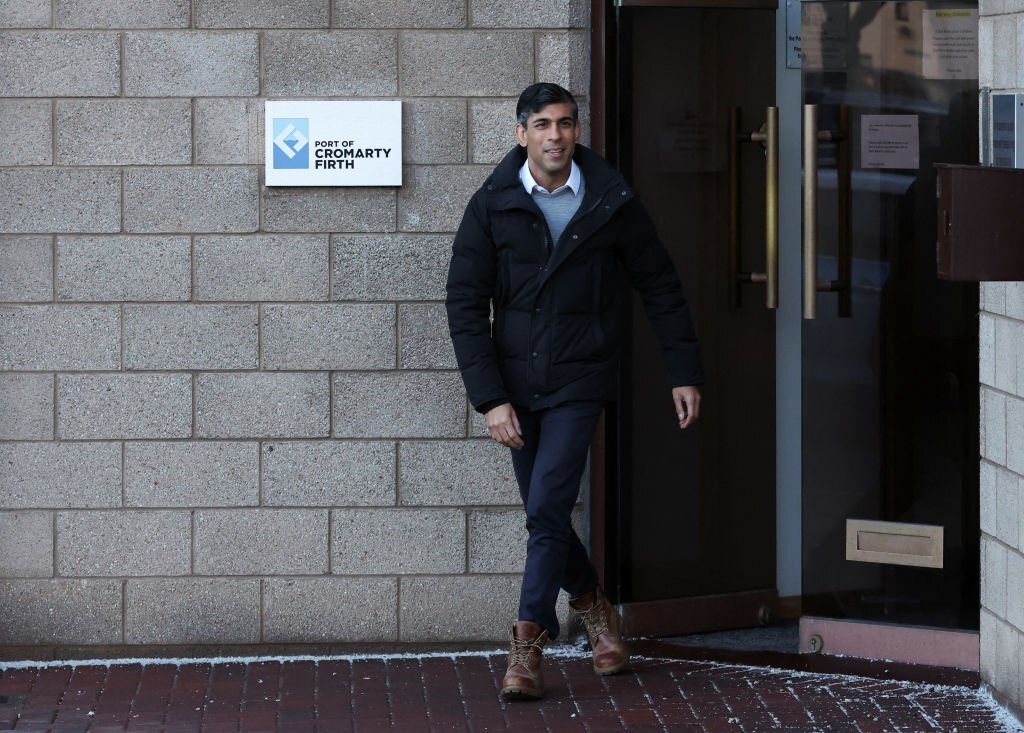The British National Health Service (NHS), providing free medical services to the British for many years, has been in a growing crisis since the beginning of the Covid-19 epidemic and the massive strike of medical workers in various departments. The NHS crisis is intensifying day by day. Crowded waiting rooms, hours of desperate pleas for help, and more UK hospitals declaring a disaster. The question is, what is Rishi Sunak’s government’s solution to solve this crisis? Have these solutions been effective so far? Buying short-term care places is a solution that the government has provided to solve the crisis.
The catastrophic state of emergency services
Adrian Boyle, president of the Royal College of Emergency Medicine (RCEM), agrees that emergency room situations are now dire. Boyle explains that because of the current flu and the new wave of Covid-19 in the UK, too many people are stuck in our emergency departments. He emphasized: “Emergency departments are in a challenging and, in some cases, a complete state of crisis right now … and in many cases, we are unable to provide care at the standard we would like.”
12-hour wait for patients in UK emergency rooms
According to RCEM, wait times are longer than ever this winter. In November alone, almost 38,000 people had to wait more than twelve hours in England emergency rooms to be transferred to a hospital ward, three and a half times more than the previous year. Among other things, it was aggravated by Brexit. According to official figures and statistics, there are 133,000 vacancies in the UK healthcare system.
The increase in the number of deaths in the UK healthcare system
According to the Royal College of Emergency Medicine, up to 500 extra deaths a week in the UK are expected to occur simply because those affected do not receive prompt and timely help. A year ago, Boyle reports, the usual time between calls, took 20 minutes for the ambulance to arrive. Last December, it was an average of one and a half hours. And in the previous few days, it was two and a half hours or more.
Declaration of disaster in British medical centres
More and more clinics in the UK have declared disaster. Many of them have reached the stage of filling the beds. Milton Keynes and Luton are considering setting up a tent on the grounds of their central clinic for those seeking help. Several hospitals reported that they had run out of portable oxygen cylinders earlier this year. In some areas, there is concern about expanding cold storage facilities. Doctors and nurses complain that the situation is worse than the beginning of the Covid-19 epidemic.
NHS crisis deepens in winter
As such, the crisis in the UK’s healthcare system, primarily financed by taxpayers’ money, is an ongoing issue in the UK. In winter, it is usually exacerbated by colds and strikes. This year there are a higher-than-average number of flu cases in the UK requiring hospital treatment. The number of Covid-19 patients in clinics is now increasing again. Long queues of ambulances usually form outside UK emergency rooms because patients cannot be admitted and cared for seamlessly.
Hospital bed shortage crisis
The NHS announced that it plans to discharge thousands of patients from hospitals in the coming weeks to deal with the shortage of hospital beds and empty the occupied beds in the harshest winter ahead in this country. Currently, some patients are being treated in the corridors, and ambulances are lined up outside the hospitals to transfer patients from the inpatient department to the emergency department.
Allocation of funds for the purchase of short-term care places
In addition, doctors and nurses are also facing the challenge of discharging patients amidst the shortage of medical staff and hospital beds. In a statement, the government said it plans to allocate £200 million to purchase short-term care facilities so that patients who, according to the doctor, have less medical care and need will care for a while.
Also, 50 million pounds will be allocated to the upgrade of existing equipment will be assigned. Buying short-term care places is a solution that the government is implementing to save the country’s healthcare system.
Rishi Sunak’s priorities for the UK healthcare system
Meanwhile, Prime Minister Rishi Sunak said last week that reducing patient waiting lists for treatment is one of his five priorities for the new year. He said this goal might be achieved later than other goals. The UK government previously announced an additional £500 million investment in the National Health Service and palliative care to discharge patients. However, the opposition Labor Party believes that the allocation of this figure is still in the early stages and is too much to solve the problems this winter.
Inadequate funding is the reason for the NHS crisis
National Health Service statistics show that more than 9 out of 10 hospital beds are completed in the week leading up to the New Year, and 13,000 beds are occupied daily by patients who can be medically discharged. Politically, Sunak has one problem above all else: the underfunded NHS exposes the sometimes disastrous state of the health system, especially in winter. The lack of funding has aggravated the NHS crisis. The plan to purchase short-term care places is similar to the strategy implemented in this country’s hospitals during the Covid-19 epidemic, in which hospital beds were kept empty as much as possible to be available to Covid-19 patients. The British National Health Service is under additional pressure due to the spread of Covid-19 and Influenza. On top of the backlog created due to the epidemic of these diseases and the widespread strike of the medical staff, this winter is considered a big challenge for the new UK government.

